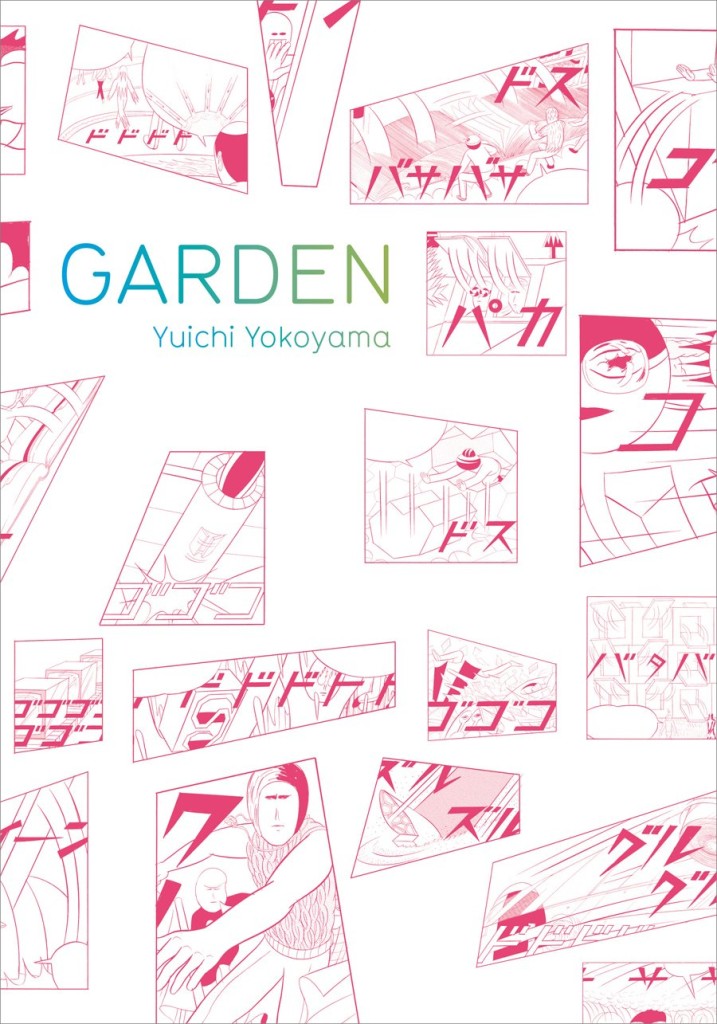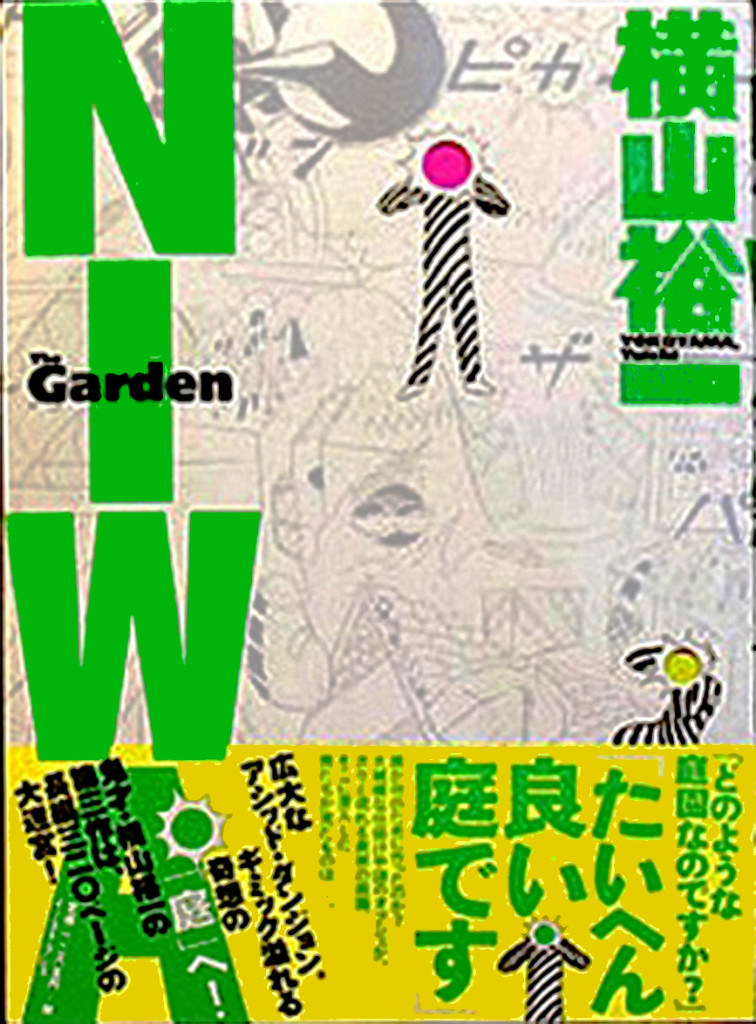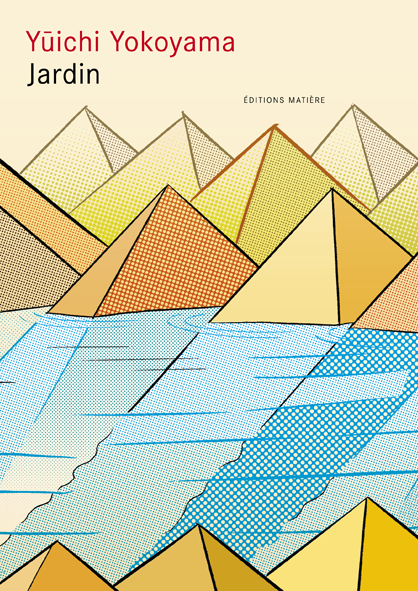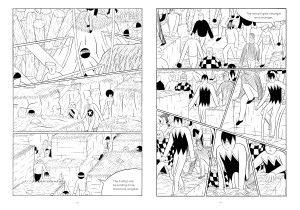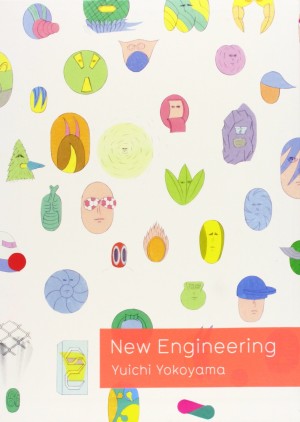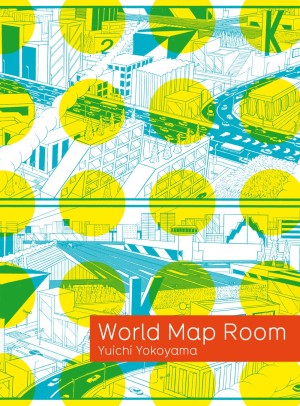Review by Woodrow Phoenix
Garden is the third book by Japanese artist Yuichi Yokoyama. It continues the style and approach of his earlier books New Engineering and Travel, with a few refinements in presentation. Like Travel, it’s a long (318 pages) continuously unfolding situation, but it features the same kinds of masked and costumed protagonists on a mission that we saw in New Engineering. The sound effects are also back. Translations of the noises are printed on or directly beneath each sound effect, a clever solution to the usual relettering problem that works surprisingly well. There are speech balloons too, but the way the characters talk to each other hasn’t got much in common with naturalistic dialogue. In Travel, the author’s commentary explained what many of the images showed and speculated on what the characters might be doing in a carefully detached, neutral tone as if Yokoyama himself was only an interpreter, with no privileged information about what was happening in those pages. In Garden, the task of helping the reader understand what they are seeing passes to the protagonists, who keep up a continual narration of questions, observations, descriptions and comments as they navigate this strange territory.
The book begins with three men being refused entry to the titular Garden. They circumvent this through a break in the fence. Confronted with an artificial landscape of geometric shapes that pile up or spread out forming rivers, valleys, mountains, and plains, they begin walking, climbing, diving, wading and otherwise making their way through an immense man-made assembly of different installations. The deliberate nature of the environments feels like artworks, but of a scale and complexity which makes them question what it was all made for, and how?
Yokoyama’s work is almost pure phenomenology, presenting objects and situations for the reader to experience directly through his comics panels as if they were a VR headset, a method to investigate how we understand the things we look at. Having his characters narrate as they move through the book dulls the edges of this sensation-filled exploration – the relentless way they keep moving, treating every new thing they encounter with the same affectless efficiency begins to flatten the wonder of what we are looking at, and at points there’s a danger it could be reduced to a banal weird travelogue. The most effective passages are the points where the exegetic dialogue stops for a few pages, as the explorers trigger big events in the landscape which result in activity that we can silently experience through our own eyes rather than via theirs: a flurry of flying birds, individual tornadoes each composed of a different material, or a rain of photographs that becomes a portrait of the people and places journeyed through in this book.
Garden may sound dry, or harder work than you might look for in a graphic novel, but there are moments of real poetry and mysteries that resolve beautifully, in uniquely interesting and memorable ways. If you have the patience to try this new way of looking at narrative, you will find striking and thought-provoking ideas to chew on. There is a resolution to the exploration of this garden that ties up some of the events, but if you read this book in the way that Yokoyama wants you to, the journey itself is the reward. The intensity of the swirling conclusion is just a kind of bonus.
